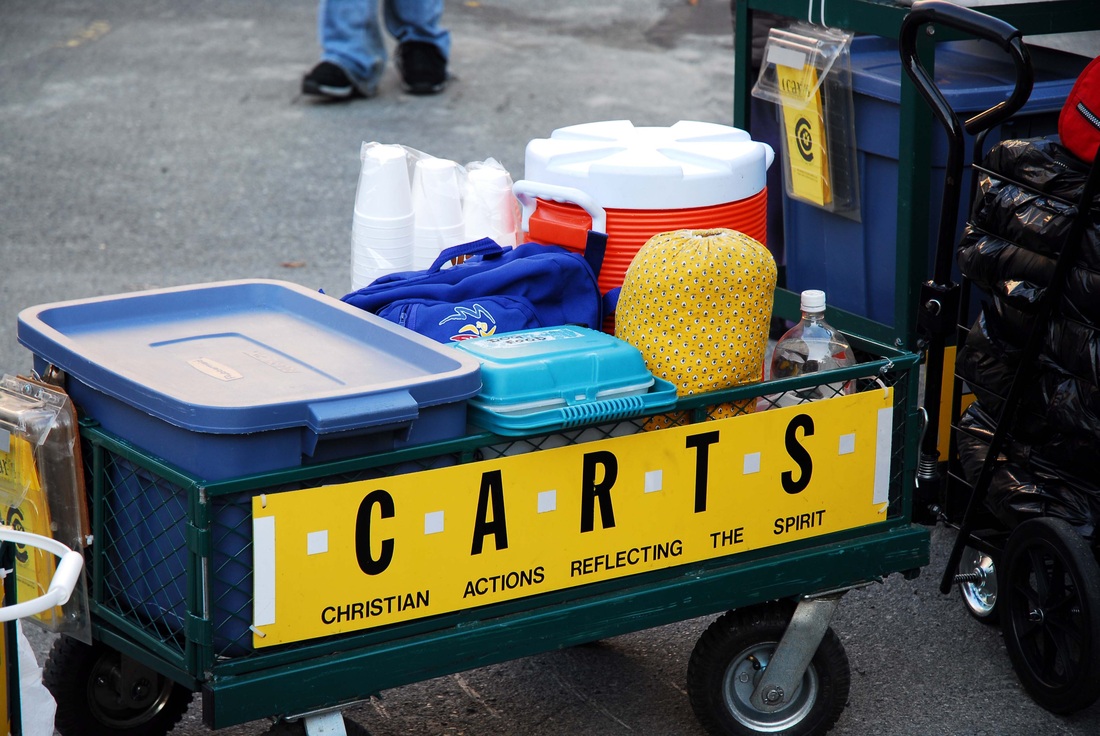|
(montage: J Fowler)
Teresa of Avila said, “Christ has no body now on earth but yours, no hands but yours, no feet but yours; yours are the eyes through which Christ’s compassion looks out on the world.” While those words sound beautiful, many of us struggle with how to care for broken people. Compassion comes easily for people who are like us, but what about people on the margins of society. How can we be the hands and feet of Christ to people who are struggling in the downward spiral of poverty and isolation? Can you see the face of Jesus in the faces of those in need? Yet Jesus was very clear in his teaching that living faith out, somehow we don’t have the option not to care for the down and out. The Good Samaritan crossed the road and was moved by compassion for the mugged man. He got involved by bandaging his wounds and then took him to the nearest rehab center and paid for his rehabilitation. What we do for the least of these, Jesus said, is what we do for him. The list included providing food and clothing, looking after people in prison, caring for the sick and taking in strangers. Compassionate care for the poor is central to the teaching of Scripture. Ultimately the power to overcome poverty lies in learning to live the Jesus way, to follow him in how he interacted with the poor and the marginalized, and to be willing—like Jesus, to lay down our self-centered, materialistic lives to take up the cross of loving generosity, gentle kindness, and tenacious advocacy for the rights of the poor and the oppressed. The needs of the poor are often complicated. Generations of social castaways are plagued with inadequate education, dilapidated housing and few employable skills. What can we do find and serve the least of these? Navigating the inner city streets of victoria since 2003 CARTS has seen many men and women who have become homeless in the city , and as we have visited the marginalized community of the inner city, We have discovered good news of the gospel unfold before us...in profound mystery Jesus comes alive...in our midst. We actually can, in very practical ways, find sustainable, manageable ways to make a difference in the lives of the poor. Caring for the poor is something we do together. As individuals, as a community, we each have a role to play. The spirit stirs the waters of compassion within us to move in faith, to move love into action feeding and clothing the homeless, providing shelter, caring for the sick and ministering to those suffering. Each of us can plant our humble seed of faith, into nurturing friendships. More than anything poverty needs friendships.
2 Comments
Al
11/4/2011 02:50:43 pm
It's a challenge to me to see Jesus in people. I understand the idea of me being Jesus, being his hands, his heart, his words. But in effect seeing the same in someone else is a something I still am working on.
Reply
I love the idea of friendship and poverty. I think when we segregate the poor to "us" and "them" there is no real sense of the community Jesus imagined. But, with friendship, true friendship we are drawn to a new level of relationship...." to love my neighbor as my self." I make sure he or she is as well taken care of as me. My well being is dependent on their well being. CARTS is about that kind of friendship...and in the deepest sense, it is mending poverty.
Reply
Leave a Reply. |
CARTS Outreach
|
Powered by
 Create your own unique website with customizable templates.
Create your own unique website with customizable templates.
 Create your own unique website with customizable templates.
Create your own unique website with customizable templates.


 RSS Feed
RSS Feed